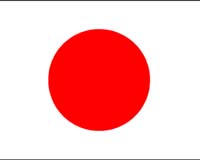 |
Washington (AFP) May 19, 2011 A battle raged Friday over the choice of a new leader for the IMF, with Europe trying to keep the post, emerging countries muscling in and the OECD head saying it is time for a change. European nations have moved to keep their lock on the IMF's top job after Strauss-Kahn said early Thursday that he would be stepping down to battle allegations of sexual assault in a statement from his New York jail cell. Many of Europe's leading figures have lined up behind front-runner Christine Lagarde, the respected French finance minister who, like Strauss-Kahn, has an intimate knowledge of Europe's debilitating fiscal problems. But rising powers like Brazil, China and India have moved quickly to prevent a fait accompli with counter-calls for a more transparent selection process. Beijing's state media on Friday carried calls for the next IMF chief to be Chinese, with one editorial saying the economic powerhouse has "a large number of people capable of holding the position." Its central bank chief Zhou Xiaochuan had earlier said only that the top management "should better reflect changes in the global economic structure and better represent emerging markets." The head of the Organization for Economic Cooperation and Development also said the time had come to break with the arrangement since World War II that a European heads the fund, but that a choice had to be made quickly. Egyptian Abdel Shakour Shaalan, who represents the Arab states on the Fund's 24-member governing board, was "initiating contacts with his colleagues today about the selection process," IMF spokesman William Murray said Thursday. The position is a crucial one in the world economy. The global lender of last resort, the IMF each year lends tens of billions of dollars to troubled countries to help right their economies when no others will help them. But it also lays down strict standards of fiscal and economic reform for its clients which can upset political and social systems. The IMF explained that the board would choose a qualified candidate from any of the institution's 187 member states. It also said that, while the board is empowered to vote on the managing director, it preferred to reach a consensus on the right person. But after more than six decades of reaching a consensus on only Europeans, foremost French, there were widespread calls for a change in the process. "Consensus is a very flexible word... it is not transparent. One never knows how this consensus is achieved, who is achieving this consensus," Indian IMF executive director Arvind Virmani told AFP. "There are a lot of people who feel that the process has not been credible," he said, adding that he was expressing his personal views and not India's official position. He warned that without a clear-cut nomination and voting process to replace the backroom politicking of the consensus method, some of the most qualified developing economy candidates might not be willing to stand. Top officials from several emerging powers have made similar appeals. "The era is over in which it may have been even remotely appropriate to reserve that important post for a European national," Brazilian Finance Minister Guido Mantega said earlier this week. While developing countries have not coalesced behind one individual, favorites include Turkish former UN official Kemal Dervis, Indian planner Montek Singh Ahluwalia and Mexican central banker Agustin Carstens. But the eurozone nations were pleading for special consideration this time around given the deep fiscal crises in peripheral states like Greece, Ireland and Portugal -- all under expensive IMF bailout programs. Europe stands "at the epicenter of a world crisis," cautioned Luxembourg premier Jean-Claude Juncker, who heads the 17-nation single currency area. "We have good reasons to name another European." Several other names have circulated, including the outgoing European Central Bank head Jean-Claude Trichet and Leszek Balcerowicz, the pioneer of Poland's transition from communism to the free market. The Americans, who hold the largest single chunk of voting rights on the IMF board, with a 16.80 percent share, refused to take sides publicly. Treasury Secretary Timothy Geithner said: "We want to see an open process that leads to a prompt succession for the Fund's new managing director." One of his top aides, Lael Brainard, added separately: "We haven't taken a position on any particular candidate."
Share This Article With Planet Earth
Related Links The Economy
 BoJ leaves key rate unchanged, eyes recovery
BoJ leaves key rate unchanged, eyes recoveryTokyo (AFP) May 20, 2011 The Bank of Japan on Friday left its key rate unchanged, sticking to its view that the economy will pick up later this year despite being pushed into recession by the March 11 earthquake. The central bank maintained its easy monetary policy with rates at between zero and 0.1 percent and kept its 10 trillion yen asset buying fund to spur investor confidence and push down long-term interest ra ... read more |
|
| The content herein, unless otherwise known to be public domain, are Copyright 1995-2010 - SpaceDaily. AFP and UPI Wire Stories are copyright Agence France-Presse and United Press International. ESA Portal Reports are copyright European Space Agency. All NASA sourced material is public domain. Additional copyrights may apply in whole or part to other bona fide parties. Advertising does not imply endorsement,agreement or approval of any opinions, statements or information provided by SpaceDaily on any Web page published or hosted by SpaceDaily. Privacy Statement |